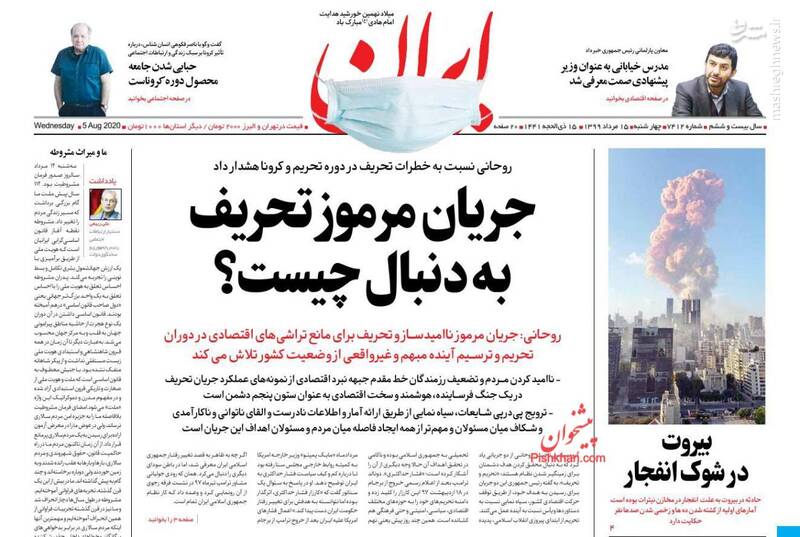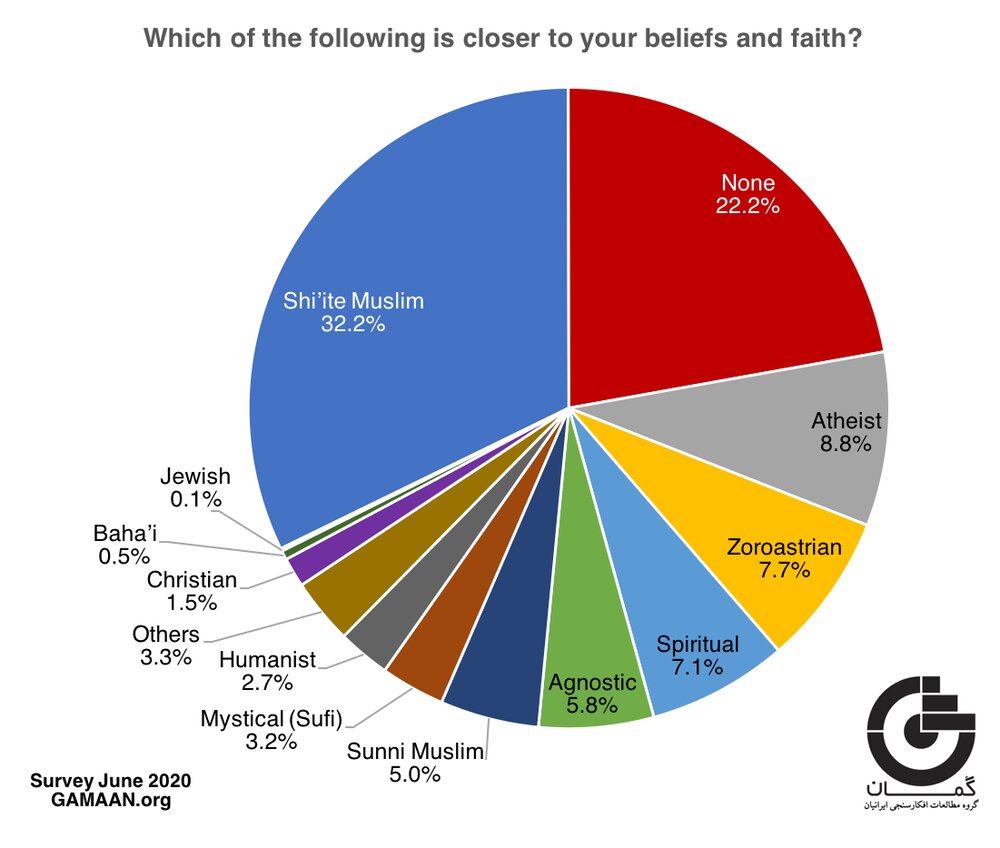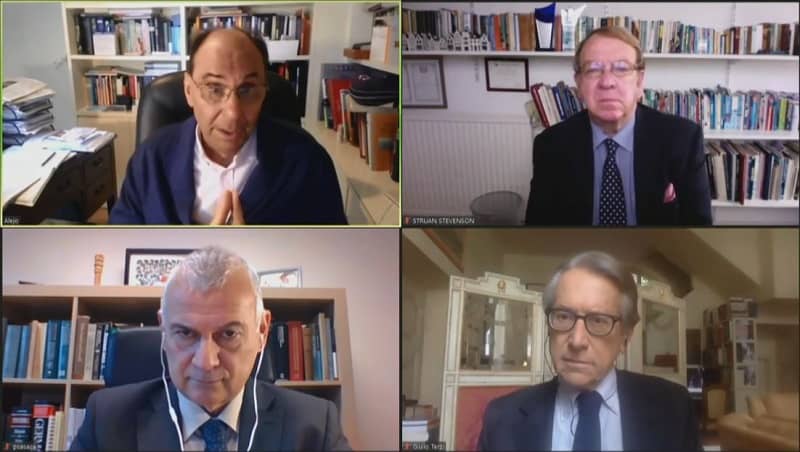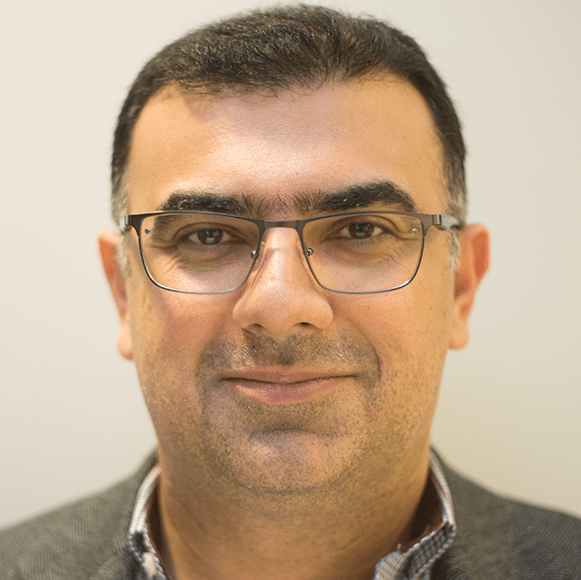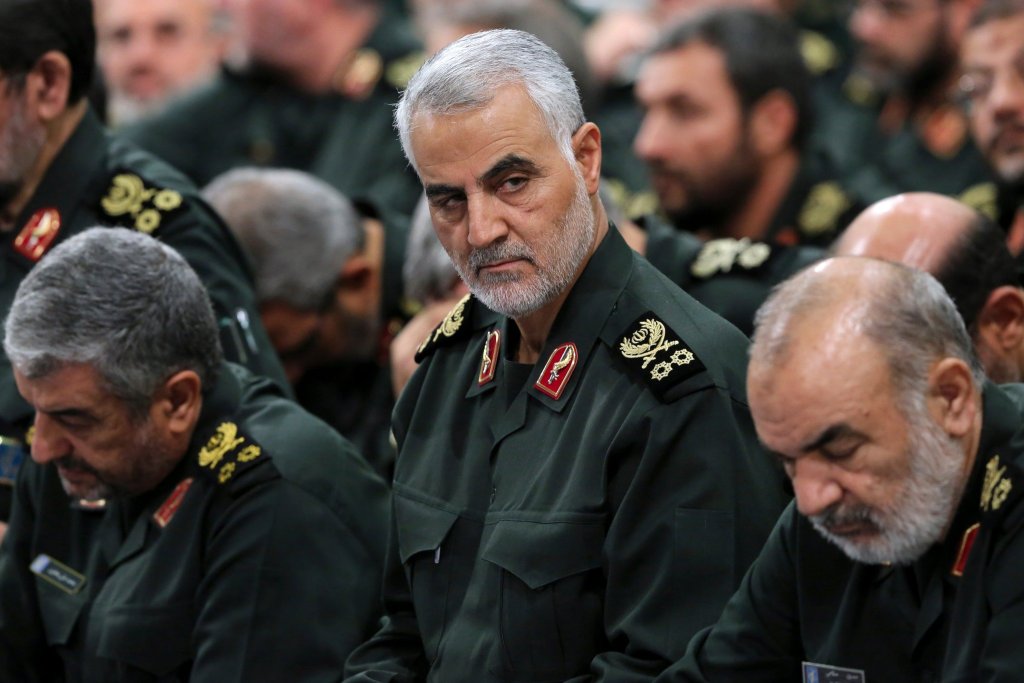تحریف واقعیت برای مهار "جریان تحریف"
مهرا شمیرانی
پس از اینکه علی خامنهای در سخنرانی اخیرش به مناسبت عید قربان، از پدیدهای به نام "جریان تحریف" نام برد و شکست این جریان را شرط شکست تحریم قلمداد کرد، موجی از "تحریفشناسی" در جریان راست رادیکال سر بر آورده است تا سخن رهبر جمهوری اسلامی بی بسامد و بی پیامد نماند اما حسن روحانی نیز در سخنرانیاش در ستاد هماهنگی اقتصادی دولت تلاش کرد مانع از مصادره مفهوم "تحریف" از سوی اصولگرایان افراطی شود.
سخنرانی رهبر جمهوری اسلامی در روز دهم مرداد ماه ایراد شد و یک روز بعد، نمایندگان مجلس درباره ضرورت مقابله با "جریان تحریف" سخن گفتند و روزنامههای تندروی جناح راست، مثل کیهان و وطن امروز در روز ١٣ مرداد گزارشهای مفصلی درباره مصادیق و اهداف "جریان تحریف" منتشر کردند.
علی خامنهای سالها پیش، دولتهای هاشمی رفسنجانی و محمد خاتمی را نیز مصادیق جریان سکولار قلمداد کرده بود و از دولت محمود احمدینژاد به عنوان دولتی حزباللهی و انقلابی یاد میکرد اما بعد از اینکه احمدینژاد از فاز تبعیت محض در برابر رهبری خارج شد، خامنهای در اشاره به چهرههای موثر دولت احمدینژاد از پدیدهای به نام "جریان انحرافی" در فضای سیاسی کشور سخن گفت.
اینک به نظر میرسد "جریان تحریف" نیز لقبی منفی است که نصیب دولت روحانی و سایر نیروهای غربگرای موجود در ساختار نظام جمهوری اسلامی شده است؛ غربگرایانی که هنوز هم ولو در ذهنشان قائل به مذاکره با آمریکا هستند و امیدوارند با پیروزی جو بایدن در انتخابات ماه نوامبر، باب مذاکره مجدد با آمریکا باز شود.
اما کارکرد جریان تحریف از نظر رهبر جمهوری اسلامی چیست؟ "وارونه نشان دادن اوضاع کشور به قصد ناامید کردن مردم". هدف از این کار هم پمپاژ غربگرایی در نظام جمهوری اسلامی و نشستن بر سر میز مذاکره با دولت بعدی آمریکاست. هم از این رو حسن روحانی میکوشد "جریان تحریف" را به گونهای معنا کند که راستگرایان افراطی نیز جزو مصادیق آن باشند.
اما نمایندگان اصولگرای مجلس یازدهم که در واقع نماینده اقلیتی قلیل از مردم ایرانند، خط ترسیم شده از سوی علی خامنهای را دنبال کردند و به انحاء گوناگون سخنانی خوشایند رهبری و در نقد خط مشی نیروهای غربگرای از نفس افتاده نظام جمهوری اسلامی گفتند.
حسینعلی حاجی دلیگانی عضو هیات رئیسه مجلس یازدهم، در همین زمینه به خبرگزاری مجلس گفت: «جریان تحریف آن عده از افراد داخلی هستند که با سرسپردگی به حامیان خارجی و تبعیت از رسانههای معاند، تلاش دارند از طریق عملیات روانی اوضاع کشور را وارونه جلوه داده و باعث ایجاد موج ناامیدی در کشور شوند.»
حسین خسروی، عضو هیات رئیسه کمیسیون امور داخلی نیز به خبرگزاری مجلس گفت: «نشستن پای میز مذاکره با آمریکاییها یعنی عمل کردن به درخواستهای متعدد و بعدی آنها؛ از این رو نباید حتی به یک خواسته آنها تن دهیم اما متأسفانه یک جریان خاص ... در داخل کشور ... اوضاع کشور را به گونهای وارونه جلوه میدهند و راه حل را ارتباط با آمریکا معرفی میکنند.»
یکی از محورهای اصلی سخنان نمایندگان مجلس، تاکید بر تلاش دشمن و غربگرایان تحریفگر داخلی بر "وارونه جلوه دادن اوضاع کشور" است. منظور از عبارت "اوضاع کشور" در جملات نمایندگان مجلس، فقر و تورم و بیکاری و گرانی روزافزون قیمت مسکن و کالاهای اساسی مورد نیاز مردم است. اما معلوم نیست منظور نمایندگان مجلس از عبارت "وارونه جلوه دادن" دقیقا چیست؟ اینکه رسانههای خارج کشور و یا طرفداران مذاکره با آمریکا در داخل کشور، فلاکت اقتصادی حاکم بر ایران امروز را گوشزد میکنند، آیا مصداق "جلوه دادن اوضاع کشور" است یا مصداق "وارونه جلوه دادن اوضاع کشور"؟
به گواهی بخش عظیمی از اقتصاددانان کشور، جامعه کنونی ایران به لحاظ اقتصادی در حضیضی کمنظیر در سراسر سده اخیر شمسی به سر میبرد؛ به نحوی که بسیاری از جامعهشناسان و اقتصاددانان در یکی دو سال اخیر بارها به احتمال مواجهه نظام جمهوری اسلامی با "شورش گرسنگان" اشاره کردهاند و نسبت به ضرورت تغییر "اوضاع کشور" هشدار دادهاند. وقایع دی ٩۶ و آبان ٩٨، از نظر بسیاری از تحلیلگران سیاسی و کارشناسان اقتصادی، پیشدرآمد یک زلزله سیاسی عظیم بود؛ زلزلهای که یکی از ارکانش نارضایتی مردم ایران از شرایط اقتصادی موجود است؛ شرایطی که محصول غربستیزی جمهوری اسلامی بوده و روابط حسنه حکومت ایران با چین و روسیه نیز، تا کنون نتوانسته درمانی بر این درد مزمن و فراگیر و در حال تشدید باشد.
تحقیقات اخیر نیز نشان میدهد که رقم شاخص فلاکت در ایران در سال ١٣٩٨، نزدیک به ٥٢درصد بود که بدترین رقم در ٢٤ سال گذشته است. رتبه جهانی شاخص فلاکت ایران در سال 2019 در بین ٩٥ کشور جهان ٩١ بود؛ رتبهای که بدترین شاخص فلاکت اقتصادی در کل خاورمیانه را نصیب ایران کرده است.
به نظر میرسد تاکید علی خامنهای بر ضرورت مقابله با "جریان تحریف"، مقدمهای برای تدارک فضای سیاسی لازم جهت روی کار آمدن "دولت انقلابی و جوان" مد نظر رهبری در انتخابات ١٤٠٠ باشد. هم از این روست که روزنامههای کیهان و وطن امروز روز دوشنبه این هفته، پیگیر ادامه موضعگیریهای نمایندگان مجلس علیه طرفداران مذاکره با آمریکا شدند و عبارت نوپدید "جریان تحریف" را چون چماقی نوساخته بر سر حسن روحانی و جواد ظریف کوبیدند.
در گزارش اصلی روزنامه کیهان، "جریان تحریف" توصیف تام و تمام دولت نخست روحانی بود. کیهان مدعی شد ظریف و روحانی و حامیان داخلی دولت یازدهم از آن رو که مذاکره با غرب و تحقق و حفظ برجام را حلّال مشکلات اقتصادی کشور میدانستند، در بزنگاههای خاص، با اظهار نظرهایی عجیب به آمریکا فهماندند که دولت ایران تحت هر شرایطی خواهان انعقاد توافق هستهای است و حتی در صورت خروج آمریکا از برجام، ایران از برجام خارج نخواهد شد.
کیهان نوشت: «در شهریور ۹۳ و در میانه مذاکرات هستهای ایران و ١+٥ ظریف در مصاحبه با رادیو "انپیآر" آمریکا در اظهارنظری عجیب گفت: "رسیدن به هر نوع توافقی، بهتر از عدم توافق است"! ... همزمان با مذاکرات ایران و ١+٥ در دولت یازدهم و به فاصله سه هفته پس از آغاز دور جدید مذاکرات در نیویورک، روحانی در اظهارنظری تأملبرانگیز گفت: "دولت در شرایطی کار خود را آغاز کرده است که با خزانه خالی با انبوهی از بدهکاری مواجه بوده است"! در آن مقطع کارشناسان و صاحبنظران با دلایل متقن و کارشناسی تأکید کردند که این اظهارنظر با واقعیت هیچ تناسبی ندارد. متأسفانه این اظهارنظر نقش مؤثری در تضعیف موضع دیپلماتهای ایرانی در مذاکرات داشت. به عبارت دیگر این اظهارنظر، توان چانهزنی را از دیپلماتهای ایرانی گرفت.»
این گونه بود که از نظر کیهان، جریان تحریف موفق شد واقعیات ایران را وارونه جلوه دهد و غرب را به توافق هستهای ترغیب کند و برجام بدینسان رقم خورد.
اما چه شد که آمریکا از برجام خارج شد؟ تبیین کیهان از این واقعه چنین است: «طرف آمریکایی در پی آن بود تا اطمینان پیدا کند که ایران به هیچ عنوان از برجام خارج نمیشود. روحانی در اولین روزهای اردیبهشت ۹۷ و چند روز پیش از خروج آمریکا از برجام، در اظهارنظری عجیب گفت: "اگر اهداف ما از برجام بدون آمریکا محقق شود، چه بهتر در غیراین صورت تصمیم خود را خواهیم گرفت"! ... این موضع تأملبرانگیز به آمریکاییها این پیغام را داد که شما مختارید تا هر اقدامی را که میپسندید در قبال برجام انجام دهید و از بابت واکنش ایران نگران نباشید، دولت ایران از محدودیتهای برجامی فراتر نرفته و به هیچ عنوان از برجام خارج نمیشود!»
در توصیف و تببین کیهان، جالی خالی تصمیمات و مواضع رهبر جمهوری اسلامی در چرایی ورود ایران به برجام و باقی ماندنش در این توافق تاریخی، حتی پس از خروج آمریکا از برجام، آشکارا به چشم میخورد. در حالی که علی خامنهای تاکید کرده بود اگر آمریکا برجام را پاره کند، ما آن را آتش میزنیم، دولت ترامپ از برجام خارج شد ولی جمهوری اسلامی در برجام باقی ماند. در واقع به نظر میرسد انتقاد کیهان و سایر نیروهای حزباللهی تندرو از ورود ایران به برجام و خارج نشدن فیالفورش از برجام، پس از خروج آمریکا از این توافقنامه، انتقادی از رهبر جمهوری اسلامی هم باشد اما چون کیهان و سایر تندروهای داخلی نمیتوانند خامنهای را به باد انتقاد بگیرند، همه کاسهکوزهها را بر سر روحانی و ظریف میشکنند.
اما اگر مذاکره با غرب برای علی خامنهای جنبه تاکتیکی داشت، تاکتیکی که آزموده شد و با ظهور ترامپ جواب نداد، اصولگرایان تندرو میدانند مذاکره و توافق با غرب برای لایههای غربگرای نظام جمهوری اسلامی، جنبه استراتژیک دارد. حسن روحانی در اولین نشست مطبوعاتیاش پس از کسب رای مردم در خرداد ١٣٩٢، اعلام کرد با روابط ایران و چین مخالف نیست ولی ملاحظاتی در این زمینه دارد. در طول مذاکرات ایران و غرب برای رسیدن به توافق هستهای، خواسته استراتژیک خامنهای درباره توسعه و تحکیم روابط ایران و چین از سوی دولت روحانی جدی گرفته نشد و از دل این بیتوجهی و تمرکز دولت بر توافق با غرب، نهایتا برجام بیرون آمد. با بیاثر شدن برجام دستگاه موازی رهبر جمهوری اسلامی در سیاست خارجی، بسط ید پیدا کرد که پیگیر توافقی بلندمدت و گسترده با چین شود؛ توافقی که هنوز به جای درخوری نرسیده ولی به محض آفتابی شدن در فضای سیاسی ایران، با مخالفت اقشار گوناگون جامعه ایران مواجه شده است.
در جنب چنین مخالفتی، میل استراتژیک غربگرایان مستقر در نظام برای مذاکره مجدد با آمریکا و دستیابی به توافقی جدید با غرب در صورت پیروزی جو بایدن در انتخابات، زنگ خطری برای نیروهای تندرو و غربستیز جمهوری اسلامی قلمداد میشود. هم از این رو این نیروها با اذن هسته مرکزی قدرت، در قالب رونمایی از اهداف "جریان تحریف"، مشغول حمله به هر گونه تلاش احتمالی دولت روحانی برای مذاکره با دولت ممکنالوقوع جو بایدن در شش ماه پایانی عمر دولت روحانیاند.
به همین دلیل روزنامه وطن امروز در گزارش خود با عنوان "حروف تحریف" (دوشنبه ١٣ مرداد)، بر این نکته تاکید میکند که یکی از مهمترین خطوط تبلیغی "جریان تحریف" در سالهای گذشته، تقسیم آمریکا به "آمریکای خوب" و "آمریکای بد" است. آمریکای خوب یعنی آمریکای تحت رهبری دموکراتها، آمریکای بد هم یعنی آمریکای جمهوریخواهان.
وطن امروز در گزارش خود نوشت: «نگاهی گذرا به خط رسانهای جریان تحریف در بازنمایی آمریکای اوباما در برابر آمریکای ترامپ که این روزها با استغاثه برای روی کار آمدن "جو بایدن" به عنوان یکی از گزینههای آمریکای خوب همراه شده، موید این نکته است. در این خط رسانهای عمدتا این پیام تکرار میشود که برجام نتیجه روی کار بودن آمریکای خوب بوده و بازگشت تحریمها به دلیل به پایان رسیدن این آمریکا و آغاز حکمرانی جمهوریخواهان بوده است. بر مبنای این تقسیمبندی، هر گونه عقبنشینی در مقابل آمریکای خوب، از ترس آمریکای بد مشروعیت مییابد و رویکردی همانند "هر توافقی بهتر از عدم توافق است" پیگیری میشود.»
در واقع با ثمر ندادن برجام، کانون قدرت در ایران در تلاش است با کوبیدن بر طبل "تحریف"، و معرفی کردن هواداران مذاکره با آمریکا به عنوان مسببین اصلی وضع اقتصادی نابسامان کشور، هیچ شانسی برای نیروهای داخلی جمهوری اسلامی برای پیروزی در انتخابات ریاست جمهوری ١٤٠٠ باقی نگذارد. اگرچه انتخابات مجلس در اسفند سال قبل نشان داد که اکثریت مردم ایران دیگر امیدی به صندوق رای ندارند اما از آنجایی که انتخابات ١٤٠٠ ممکن است آخرین انتخابات ریاست جمهوری در دوران حیات خامنهای باشد، نیروهای حزباللهی ضروری میبینند برای کم کردن شرّ تتمه "غربگرایان خودی" از سر نظام تدارک لازم را ببینند تا آنها نتوانند در "ایران بدون خامنهای" جمهوری اسلامی را یکبار دیگر به سمت مذاکره و توافق با غرب سوق دهند؛ مذاکرهای که در غیاب خامنهای، نتایجش میتواند به نارضایتیهای عمیق داخلی ضمیمه شود و راه فروپاشی نظام را به کلی هموار سازد.
در چنین فضایی، البته دولت روحانی هم بیکار ننشسته است. روحانی روز سهشنبه در تبیین نقش تحریفگران، ضمن تایید حرفهای خامنهای درباره دشمنی عوامل خارجی، تلاش کرد صبغهای داخلی و اصولگرایانه نیز به "جریان تحریف" بدهد و با اشاره به "تامین مایحتاج ضروری و کالاهای اساسی مورد نیاز مردم" در شرایطی که درآمد نفتی کشور کاهشی چشمگیر داشته، "القاء ناکارآمدی دولت" را "حرکت در راستای توطئه دشمنان علیه کشور" دانست. پیشتر دولت روحانی در جوابیهای که برای روزنامه کیهان ارسال کرده بود، بر تامین کالاهای اساسی مردم در بحران اقتصادی و بحران ناشی از کرونا تاکید کرده بود. روزنامه ایران هم روز چهارشنبه (١٥مرداد) با تیتر اصلی "جریان مرموز تحریف به دنبال چیست؟"، سخنان روحانی را به شکل پررنگی پوشش داد و در خط تحلیلی ترسیم شده از سوی وی را دنبال کرد.
اما طنز نهفته در سخنان روحانی آنجا بود که وی در حالی مدعای خامنهای درباره "اهداف شوم دشمنان برای جلوگیری از پیشرفت اقتصادی کشور" را تایید کرد که استراتژی دولتش در سیاست خارجی، جلب همکاری همان "دشمنان" برای پیشرفت اقتصادی ایران بوده است. روحانی در مذاکره با آمریکا و اروپا به برجام رسید، سال گذشته نیز تمایل خودش را برای مذاکره با ترامپ برای رفع تحریمهای آمریکا علنی کرد و الان نیز امیدوار است جو بایدن در انتخابات آمریکا پیروز شود بلکه دوباره بتواند وارد مذاکره با آمریکا شود و آمریکای بایدن به برجام بازگردد تا دولت تدبیر و امید صحنه سیاسی ایران را به شکلی کاملاً مفتضح ترک نکند.

